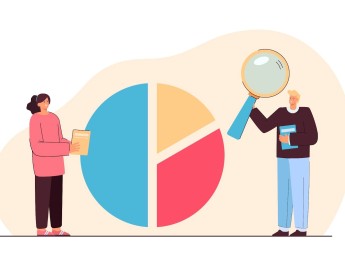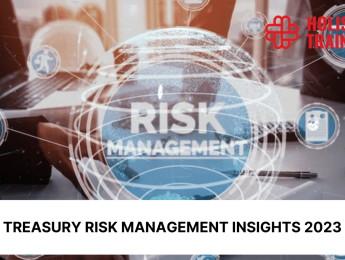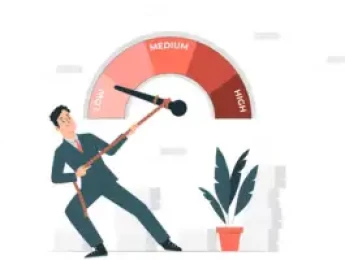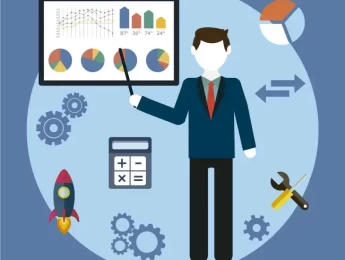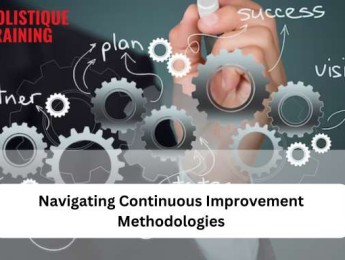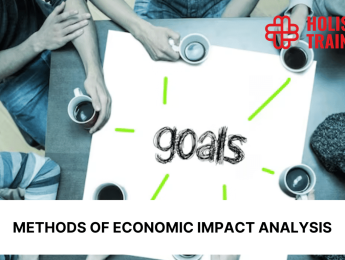- Table of Contents
- Introduction
- What Is Policy Analysis?
- Who Should You Involve in Your Policy Analysis?
- 1. Policymakers
- 2. Researchers and Academics
- 3. Advocacy Groups and NGOs
- 4. Community Members
- 5. Industry Experts
- 6. Evaluators
- Why Is Policy Analysis Important?
- Informed Decision-Making:
- Identifying Policy Gaps and Inefficiencies:
- Predicting Consequences:
- Ensuring Accountability and Transparency:
- Stakeholder Engagement and Participation:
- Nurturing Innovation and Adaptability:
- Enhancing Public Well-Being:
- Methodologies Used in Public Policy Analysis
- 1. Data Collection and Research:
- 2. Cost-Benefit Analysis:
- 3. Comparative Analysis:
- 4. Scenario Planning:
- 5. Policy Modelling and Simulation:
- Role of Public Policy Analysts
- 1. Research and Data Analysis:
- 2. Policy Evaluation:
- 3. Recommendations and Reporting:
- 4. Stakeholder Engagement:
- 5. Policy Implementation and Monitoring:
- 6. Policy Communication:
- 7. Ethical Considerations and Social Impact Assessment:
- Emerging Trends in Public Policy Analysis
- Data Analytics and Artificial Intelligence (AI)
- Behavioural Economics
- Environmental Sustainability Integration
- Participatory and Deliberative Democracy
- Digital Governance and Blockchain Technology
- Health Impact Assessments (HIAs)
- Predictive Policing and Crime Analysis
- Social Network Analysis (SNA)
- Crisis Management and Resilience Policies
- Ethical AI and Algorithmic Bias Mitigation
- Conclusion
Introduction
Public policy plays a crucial role in shaping societies and addressing various challenges governments and communities face. However, the process of formulating effective policies requires thorough analysis and evaluation. This is where public policy analysis comes into play. In this blog post, we will delve into the intricacies of public policy analysis, exploring its definition, importance, stakeholders, methodologies, and the pivotal role played by public policy analysts.
What Is Policy Analysis?
Policy analysis refers to systematically examining public policies to understand their intended objectives, potential impact, and feasibility. It involves collecting relevant data, evaluating existing policies, and providing policy improvement or development recommendations. Policy analysis aims to inform decision-makers about the potential consequences and implications of various policy options.
Who Should You Involve in Your Policy Analysis?
Public policy analysis is not a solitary endeavour; it thrives on the collaboration of diverse stakeholders, each bringing a unique perspective to the table. The involvement of these stakeholders enriches the analysis process, ensuring that policies are comprehensive, sensitive to societal needs, and practically implementable. Let’s delve into the roles of these key actors:
1. Policymakers
Policymakers are the architects of change. Their decisions impact entire communities. Their involvement is paramount in policy analysis. Elected officials and government representatives provide the necessary political insight, ensuring that policies align with the broader vision of governance. Their knowledge of political landscapes and legislative intricacies is invaluable, guiding the analysis process towards actionable policy recommendations.
2. Researchers and Academics
Researchers and academics are the intellectual backbone of policy analysis. Their expertise in specific fields contributes to empirical evidence, theoretical frameworks, and rigorous analysis. By grounding policies in research, they ensure that decisions are based on solid foundations. Their insights into emerging trends, innovative solutions, and scientific advancements provide a forward-looking perspective, enabling policies to address future challenges effectively.
3. Advocacy Groups and NGOs
Advocacy groups and non-governmental organisations (NGOs) are the voices of the marginalised and vulnerable. They represent specific interest groups, championing causes ranging from environmental conservation to human rights. In policy analysis, these organisations provide a critical lens, highlighting the needs and concerns of the affected populations. Their grassroots connections offer real-world insights, ensuring that policies are well-intentioned, practically feasible, and socially just.
4. Community Members
At the heart of every policy are the people it affects. Community members, especially those directly impacted by the policy under consideration, offer invaluable firsthand experiences. Their narratives shed light on the ground realities, presenting a human face to policy challenges. Engaging with community members fosters empathy and understanding, grounding policies in the lived experiences of the people they aim to serve. This inclusivity ensures that policies are not detached ideals but tangible solutions to real problems.
5. Industry Experts
Industries and sectors play a pivotal role in any economy. Policies often have a profound impact on businesses and trade. Industry experts, ranging from economists to environmental scientists, provide specialised knowledge. Their insights into economic implications, market dynamics, and environmental sustainability are crucial. By understanding the intricacies of industries, policies can be crafted to promote economic growth, innovation, and sustainable practices.
6. Evaluators
Evaluators are the assessors of policy impact. Their expertise lies in programme evaluation, enabling them to gauge the effectiveness and efficiency of existing policies. By critically analysing outcomes, evaluators identify successes and shortcomings. Their recommendations for improvements are invaluable, ensuring that policies evolve based on evidence and practical outcomes rather than theoretical assumptions.
Incorporating these diverse perspectives ensures a holistic approach to policy analysis. Policymakers benefit from a rich tapestry of viewpoints, enabling them to make decisions that are not only politically viable but also socially responsible and economically sustainable. The collaborative efforts of these stakeholders create a synergy where policies are not mere documents but living solutions that positively transform societies.
Moreover, this engagement fosters democratic values by ensuring that policies are not dictated from above but are participatory, reflecting the aspirations and needs of the people. It strengthens the social contract between the government and its citizens, enhancing trust and promoting a sense of ownership among the populace. In essence, the involvement of stakeholders in public policy analysis is not just a procedural necessity; it is a fundamental democratic principle that ensures governance of the people, by the people, and for the people. Through their active participation, stakeholders become the architects of inclusive, effective, and socially just policies, shaping a better future for all. This table illustrates the diverse roles of stakeholders in policy analysis and their impact on policy outcomes, highlighting the collaborative nature of effective policy-making.
Stakeholder Group | Role in Policy Analysis | Impact on Policy Outcomes |
Community Members | Offer firsthand experiences, ensuring policies are people-oriented. | Policies reflect the real needs of local residents. |
Industry Experts | Provide specialised knowledge, contributing economic and technical insights. | Policies align with industry standards and innovations. |
Advocacy Groups | Represent specific interests, advocating for marginalised communities. | Policies address social equity and justice issues. |
Researchers | Contribute empirical evidence and theoretical insights, grounding policies in research. | Policies are based on rigorous scientific analysis. |
Policymakers | Enact and implement policies, ensuring alignment with political agendas. | Policies reflect government priorities and mandates. |
Table 1: Stakeholder Engagement in Policy Analysis
Why Is Policy Analysis Important?
Public policy analysis serves as the compass guiding the ship of governance through the complex and often turbulent waters of societal challenges. Its importance cannot be overstated; it is the linchpin upon which effective decision-making and responsive governance rest. Here’s a closer look at why policy analysis is not just crucial but indispensable:
Informed Decision-Making
At the core of policy analysis is providing essential information, evidence, and insights to decision-makers. Informed decision-making is the bedrock of effective governance. Armed with comprehensive analyses, policymakers can weigh the pros and cons of different policy options. This informed perspective ensures that decisions are not made impulsively but are grounded in a thorough understanding of the implications and consequences, thereby leading to well-considered and strategic policies.
Identifying Policy Gaps and Inefficiencies
Public policies are not infallible; they need constant evaluation and adjustment. Through meticulous analysis, policy analysts can identify gaps, inconsistencies, and areas where policies fail to achieve their intended outcomes. By recognising these inefficiencies, policymakers can refine existing policies or create new, more effective ones, addressing the gaps and ensuring that societal needs are met comprehensively.
Predicting Consequences
Every policy decision has consequences, both intended and unintended. Policy analysis allows decision-makers to anticipate and understand these potential outcomes. By predicting the consequences, policymakers can assess the risks and trade-offs associated with different policy options. This foresight is invaluable, as it helps mitigate unintended negative consequences and maximise positive impacts, thereby safeguarding societal well-being.
Ensuring Accountability and Transparency
Transparent governance is the cornerstone of a democratic society. Policy analysis promotes transparency by providing a systematic approach to evaluating policies. Through rigorous analysis, policies are held up to the light, allowing policymakers to justify their decisions based on evidence. This transparency enhances the credibility of the decision-making process and fosters accountability. By establishing clear criteria for policy success, analysis ensures that policies are accountable to their objectives and the public's expectations.
Stakeholder Engagement and Participation
Inclusivity is the hallmark of democratic governance. Involving stakeholders in policy analysis fosters democratic values by encouraging participatory decision-making processes. It ensures that policies reflect the population's diverse needs, aspirations, and concerns. By engaging with a wide array of stakeholders, including community members, advocacy groups, and experts, policies become more representative and responsive, fostering social cohesion and trust in the government’s ability to address societal challenges effectively.
Nurturing Innovation and Adaptability
Societies are dynamic, evolving entities. What works today might not work tomorrow. Policy analysis evaluates existing policies and provides insights into emerging trends and challenges. It fosters innovation by suggesting new policy approaches and adaptive strategies. By nurturing this innovative spirit, policy analysis ensures that governance remains proactive, staying ahead of societal shifts and challenges.
Enhancing Public Well-Being
Ultimately, public policy aims to enhance the populace's well-being. By providing evidence-based recommendations, policy analysis contributes directly to this objective. Well-informed, transparent, and inclusive policies have a direct impact on citizens' lives. They can improve healthcare access, enhance education, bolster economic opportunities, and foster environmental sustainability. In essence, policy analysis becomes the conduit through which a society's aspirations are translated into tangible improvements in the quality of life for its citizens.
In summary, policy analysis is the cornerstone of effective and responsive governance. Its importance lies in its ability to guide decisions and its power to empower societies. By fostering transparency, inclusivity, and accountability, policy analysis ensures that policies are not just documents on paper but living instruments that drive positive change. It embodies a government’s commitment to its people, ensuring that their needs are heard and acted upon. In a world where societies' challenges are increasingly intricate and multifaceted, policy analysis remains the unwavering beacon that illuminates the path toward a better, more equitable future for all.
Methodologies Used in Public Policy Analysis
Public policy analysis involves a variety of methodologies designed to dissect policies, assess their effectiveness, and provide valuable insights for decision-makers. These methodologies offer systematic approaches to understanding the complexities of policies and their impacts on societies. Here, we delve deeper into these methodologies, shedding light on their nuances and applications:
1. Data Collection and Research
One of the foundational pillars of policy analysis is data collection and research. Analysts employ many techniques, such as surveys, interviews, focus groups, literature reviews, and statistical analysis, to gather relevant data. This data serves as the bedrock upon which analyses are built. Through rigorous research, analysts gain a profound understanding of current affairs, enabling them to identify trends, disparities, and areas where policies may fall short.
2. Cost-Benefit Analysis
Cost-benefit analysis (CBA) is a systematic process used to quantitatively assess the pros and cons of policy options. By comparing the costs and benefits of different policy alternatives, decision-makers can gauge the economic, social, and environmental impacts. CBA involves assigning monetary values to both the costs and benefits, allowing policymakers to make informed choices. This methodology is invaluable in determining the most economically efficient policy option, ensuring optimal resource allocation and societal welfare.
3. Comparative Analysis
Comparative analysis involves studying policies implemented in different regions or countries. Analysts can identify best practices, challenges faced, and lessons learned by analysing diverse approaches to similar issues. Comparative analysis provides a broader perspective, allowing policymakers to adopt successful strategies while avoiding pitfalls encountered elsewhere. This method encourages the international exchange of knowledge, fostering a global approach to policy-making.
4. Scenario Planning
In an ever-changing world, policies must be robust enough to withstand various future scenarios. Scenario planning involves developing alternative future scenarios based on different variables and conditions. By exploring multiple possible futures, decision-makers can anticipate the consequences of policies under different circumstances. This methodology is particularly useful in dealing with uncertainties and risks, enabling policymakers to design adaptive policies that can weather diverse challenges.
5. Policy Modelling and Simulation
Policy modelling and simulation employ mathematical and computational models to simulate policy scenarios. These models replicate the intricate relationships and interdependencies within societies. Analysts use simulation tools to predict the outcomes of different policy options, considering multifaceted factors. By understanding the complex dynamics of policies, decision-makers can make informed choices, foresee potential challenges, and optimise positive outcomes. Policy modelling is especially valuable when dealing with intricate systems where a single change can have far-reaching consequences.
Each of these methodologies brings a unique perspective to policy analysis, allowing analysts to explore policies from different angles. A combination of these methods is often used to provide a comprehensive understanding of the policy landscape. As policies become more complex and interconnected, the evolution of these methodologies continues, ensuring that policy analysts are equipped with the tools necessary to navigate the intricate challenges of contemporary governance. Policy analysis becomes a dynamic and adaptive field through these methodologies, essential for shaping effective policies that stand the test of time.
Role of Public Policy Analysts
Public policy analysts are the unsung heroes of effective governance, working behind the scenes to bridge the gap between theory and practice. Their multifaceted roles encompass a wide array of responsibilities, each crucial in ensuring that policies are not just well-intentioned ideas but practical, impactful solutions to societal challenges. Here’s a detailed look at the indispensable roles played by public policy analysts:
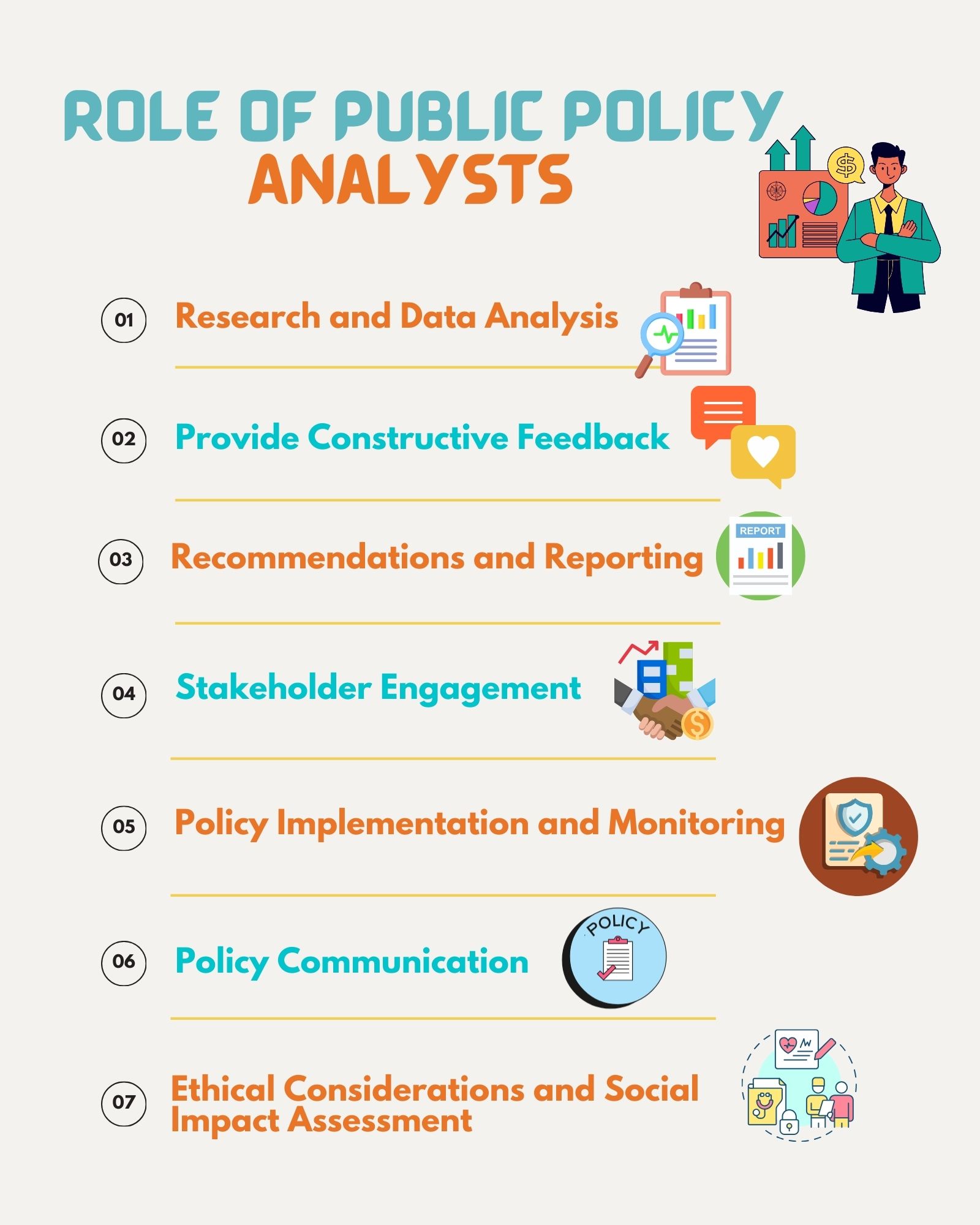
1. Research and Data Analysis
The meticulous collection and analysis of data is at the core of policy analysis. Public policy analysts are researchers par excellence. They delve into vast datasets, conduct surveys, interviews, and focus groups, and review scholarly literature. Through these methods, they gather a wealth of information, providing a comprehensive understanding of the issues at hand. This research forms the foundation upon which policies are crafted, ensuring that decisions are based on empirical evidence and rigorous analysis.
2. Policy Evaluation
Once policies are implemented, public policy analysts step in to assess their impact. Using various evaluative tools and methodologies, they examine policies from various angles: social equity, economic efficiency, environmental sustainability, and political feasibility. Through this evaluation, analysts determine whether policies meet their goals or fall short. This introspection is crucial in adapting policies to changing circumstances, ensuring they remain effective and relevant.
3. Recommendations and Reporting
Policy analysts distil their extensive research and evaluations into actionable recommendations. These evidence-based suggestions give policymakers clear directions for policy changes or new initiatives. Analysts present their findings in comprehensive reports, breaking down complex analyses into accessible information. These reports serve as guides, empowering decision-makers to make informed choices and enhancing the likelihood of successful policy implementation.
4. Stakeholder Engagement
Engaging with stakeholders is a cornerstone of effective policy analysis. Analysts collaborate with policymakers, researchers, advocacy groups, community members, and industry experts. By fostering dialogue and understanding diverse perspectives, analysts ensure that policies are well-rounded and sensitive to the needs of all stakeholders. This collaborative approach enhances the legitimacy and acceptance of policies, fostering social cohesion and support.
5. Policy Implementation and Monitoring
Policy analysts do not stop once policies are in place; they actively participate in the implementation process. They monitor policy progress, evaluating outcomes against predetermined benchmarks. This continuous monitoring allows analysts to identify bottlenecks and areas for improvement promptly. By providing feedback to policymakers and suggesting necessary adjustments, analysts ensure that policies remain adaptive and effective, responsive to society's evolving needs.
6. Policy Communication
Policy analysts master the art of translating complex policy analyses into understandable information. They communicate their findings and recommendations to policymakers, the public, and other stakeholders. Through clear and accessible communication, analysts demystify policy intricacies, fostering public understanding and support. Effective communication also helps garner public opinion, creating a sense of ownership among citizens regarding the policies shaping their lives.
7. Ethical Considerations and Social Impact Assessment
Public policy analysts navigate ethical dilemmas inherent in policy decisions. They assess the social impacts of policies, ensuring that no section of society is marginalised or adversely affected. This ethical lens is essential in crafting policies that promote social justice and equality, fostering an inclusive society.
In essence, public policy analysts are the linchpins of the policy-making process. Their work is not confined to research laboratories or government offices; it reverberates through society, shaping the very fabric of communities. Policy analysts transform policies from abstract concepts into tangible, positive changes in people's lives through their expertise, dedication, and ethical considerations. They stand at the intersection of research, governance, and societal welfare, ensuring that policies are not just words on paper but instruments of progress and social betterment. Their role, though often understated, is foundational in building a future where policies are not just functional but compassionate, equitable, and empowering.
Emerging Trends in Public Policy Analysis
Public policy analysis is not static; it evolves in response to societal needs, technological advancements, and global challenges. As the world becomes increasingly interconnected and complex, new trends in policy analysis are shaping the future of governance. These emerging trends reflect the field's dynamism, offering innovative approaches to address societies' multifaceted challenges. Here are some of the noteworthy emerging trends in public policy analysis:
Data Analytics and Artificial Intelligence (AI)
The integration of data analytics and AI technologies is revolutionising policy analysis. Big data analytics allows analysts to process vast amounts of data, extracting meaningful patterns and insights. AI, powered by machine learning algorithms, can predict policy outcomes based on historical data and simulate various scenarios. This predictive modelling enhances the accuracy of policy analysis, enabling policymakers to make data-driven decisions. Additionally, AI-driven chatbots and virtual assistants are being used to engage with citizens, gathering real-time feedback for policy considerations.
Behavioural Economics
Understanding human behaviour is fundamental to effective policy interventions. Behavioural economics, which combines insights from psychology and economics, examines how people make decisions and respond to incentives. Analysts can design interventions that align with human decision-making's inherent biases and heuristics by integrating behavioural insights into policy analysis. This approach leads to more effective policies, especially in areas like public health, education, and social welfare.
Environmental Sustainability Integration
Environmental concerns are taking centre stage globally, so policy analysis increasingly focuses on sustainability. Analysts assess policies through environmental lenses, evaluating their ecological impacts. Sustainable development goals (SDGs) are integrated into policy analysis frameworks, ensuring policies promote economic growth, environmental conservation, and social equity. Green technologies, renewable energy policies, and circular economy initiatives are some areas receiving extensive policy analysis attention. This table provides a comparative analysis of environmental policies across different countries, showcasing their unique strategies for addressing environmental challenges.
Country | Policy Focus | Noteworthy Strategy |
United States | Renewable Energy | Tax incentives for solar and wind power |
Germany | Climate Protection | Transition to renewable energy resources |
China | Green Technology | Investment in electric vehicles |
Sweden | Sustainable Transport | High usage of public transportation |
Australia | Conversation Efforts | Protection of Great Barrier Reef |
Table 2: Comparative Analysis of Environmental Policies
Participatory and Deliberative Democracy
Traditional models of policy-making are evolving towards more inclusive and participatory approaches. Deliberative democracy involves engaging citizens in informed discussions and decision-making processes. Both online and offline, participatory platforms enable citizens to voice their opinions, contribute ideas, and collaborate with policymakers. Policy analysis in this context focuses on synthesising diverse citizen inputs, ensuring that policies are co-created with the people they affect. This trend fosters a sense of ownership and trust in democratic processes.
Digital Governance and Blockchain Technology
Digital governance initiatives, driven by emerging technologies like blockchain, are transforming policy analysis and implementation. Blockchain technology ensures the integrity and transparency of data, preventing tampering and ensuring secure transactions. In policy analysis, blockchain is used to validate data sources, enhancing the credibility of research outcomes. Smart contracts, enabled by blockchain, automate policy implementation processes, reducing bureaucracy and ensuring efficient service delivery.
Health Impact Assessments (HIAs)
Health impact assessments have gained prominence in the wake of global health crises. Analysts assess policies not only in terms of their economic and social impacts but also through the lens of public health. HIAs evaluate how policies influence the health and well-being of communities. This holistic approach is vital, especially in healthcare, urban planning, and disaster management policies, ensuring that health considerations are integrated into every aspect of governance.
Predictive Policing and Crime Analysis
Predictive policing and crime analysis methodologies are benefiting law enforcement policies. Predictive algorithms analyse historical crime data to identify patterns and predict potential criminal activities. Policy analysts work closely with law enforcement agencies, utilising these insights to develop proactive crime prevention policies. These policies enhance public safety and optimise law enforcement efforts by focusing resources on high-risk areas and demographics.
Social Network Analysis (SNA)
Social network analysis explores the relationships and interactions within communities. Analysts use network mapping to understand the flow of information, influence, and resources. In policy analysis, SNA is employed to identify key influencers, community leaders, and opinion-makers. By understanding social networks, policymakers can tailor interventions to leverage existing community structures, enhancing the acceptance and effectiveness of policies.
Crisis Management and Resilience Policies
As the frequency and intensity of natural disasters and global crises rise, policy analysis increasingly focuses on crisis management and resilience. Analysts assess the effectiveness of disaster response policies, analysing factors such as preparedness, response time, and community resilience. Policy recommendations are centred around building resilient communities, ensuring they can withstand and recover from various shocks, environmental, economic, or social.
Ethical AI and Algorithmic Bias Mitigation
Ethical considerations are paramount in AI-driven policy analysis. Analysts are focusing on mitigating algorithmic biases and ensuring that AI models are fair and unbiased. Ethical AI frameworks are being developed, incorporating transparency, accountability, and fairness principles. Policy analysis in this context revolves around developing guidelines and regulations that govern the ethical use of AI technologies, safeguarding human rights and societal values.
Conclusion
Public policy analysis is an essential process for effective governance and decision-making. By employing rigorous methodologies and involving diverse stakeholders, policy analysis helps identify policy gaps, predict consequences, and inform policy development, implementation, and evaluation. Public policy analysts play a crucial role in this process, bridging the gap between research and practice, and providing evidence-based recommendations to address complex societal challenges. By embracing the principles of transparency, inclusivity, and accountability, policy analysis can contribute to more effective and responsive public policies, ultimately positively impacting societies and communities.


